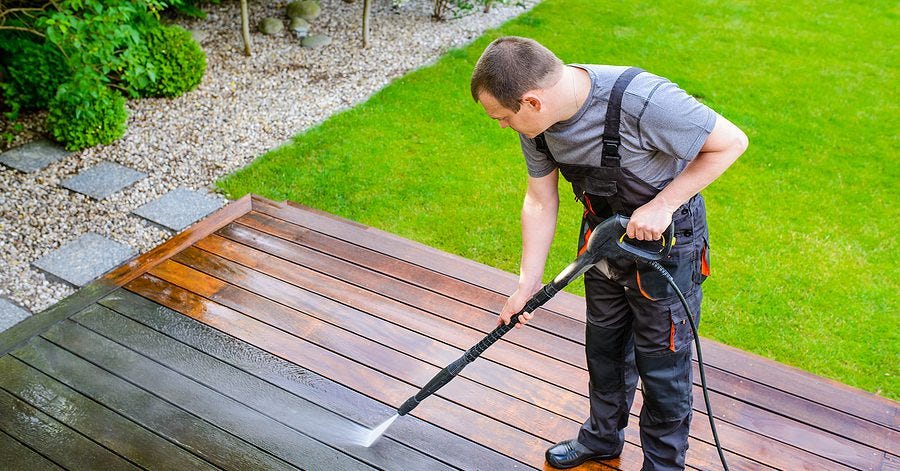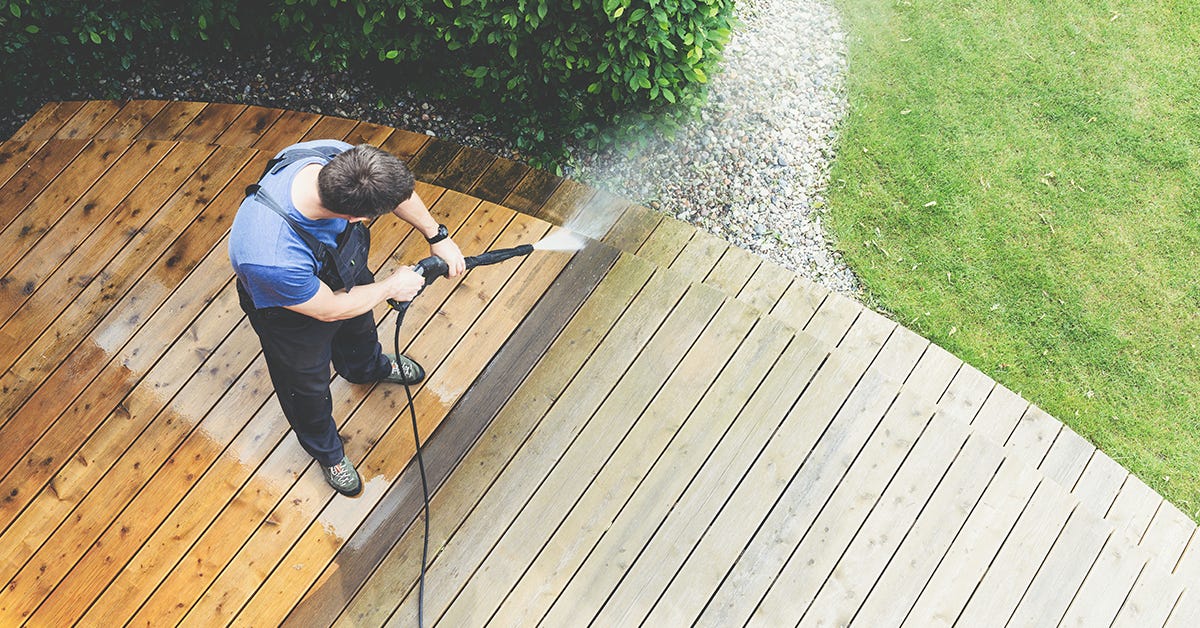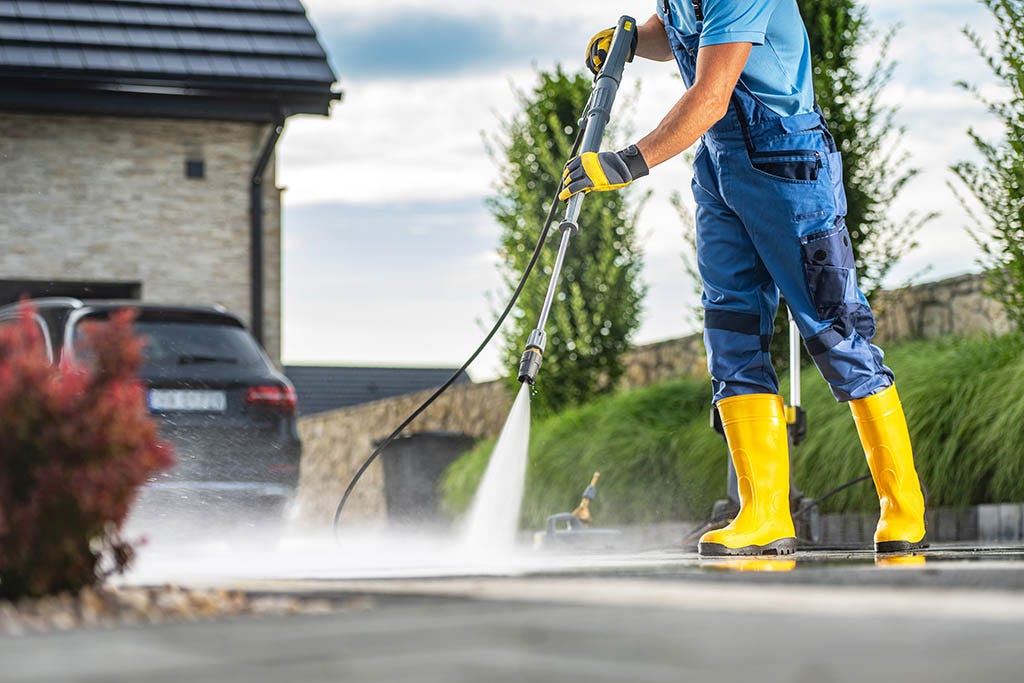How to Start a Pressure Washing Business in 2024: An In-Depth Guide
A full-time pressure washing business can earn between $50,000 and $100,000 annually, with potential for growth.
A full-time pressure washing business can earn between $50,000 and $100,000 annually, with potential for growth.
Starting a pressure washing business in 2024 can be a highly profitable venture with relatively low startup costs, minimal skills required, and a broad customer base. Whether you’re cleaning residential homes, driveways, or commercial properties, pressure washing is in demand year-round. In this guide, I will walk you through every step, from initial planning and equipment needs to marketing your services and growing your business.
Step 1: Research the Market
Before diving into any business, it’s important to conduct thorough market research to understand the market in your area.
-Identify Your Target Audience: Pressure washing services can be marketed to homeowners, property managers, real estate agents, and business owners. Decide if you want to focus on residential, commercial, or both.
- Understand the Competition: Check out other pressure washing companies in your area. Identify their pricing, services, customer reviews, and marketing strategies. This will help you find ways to differentiate your business.
- Local Demand: Investigate the demand for pressure washing in your region. Urban areas might have more opportunities for commercial pressure washing, while suburban and rural areas might offer more residential work.
Step 2: Develop a Business Plan
Your business plan is the roadmap for how you’ll start, operate, and grow your pressure washing business.
- Outline your business idea, target market, and key goals.
- Services Offered: Define the services you’ll provide (e.g., home exterior cleaning, driveway washing, roof cleaning, commercial building maintenance). Consider offering specialized services such as graffiti removal or fleet cleaning.
- Pricing Strategy: Research the going rates in your area and calculate your costs to determine competitive pricing. Typical pressure washing rates range from $0.10 to $0.30 per square foot, but this can vary based on the service and location.
- Initial Costs: Identify your startup expenses, including equipment, insurance, licensing, marketing, and operational costs. Depending on your scale, startup costs typically range from $2,000 to $10,000.
- Profit Projections: Estimate how much you can earn based on expected clientele and services. A full-time pressure washing business can earn between $50,000 and $100,000 annually, with potential for growth.
Step 3: Legal Structure and Licensing
You’ll need to make sure your business is legally compliant.
- Choose a Legal Structure: Decide if you want to set up as a sole proprietorship, partnership, LLC, or corporation. Many small business owners opt for an LLC to protect their personal assets.
- Register Your Business: Register your business name with your local and state government. You may also need a business license or permit depending on your location.
- Tax Registration: Apply for an Employer Identification Number (EIN) from the IRS, which you’ll need for tax purposes.
- Insurance: Obtain liability insurance to protect yourself from potential damages or accidents. Consider workers compensation insurance if you plan on hiring employees.
- Bonding: Some clients, particularly commercial ones, may require you to be bonded. A surety bond assures that you’ll complete the work as agreed.
Step 4: Purchase Equipment
Starting a pressure washing business requires some upfront investment in quality equipment. Here’s a list of essentials:
- Pressure Washer: Choose between a gas-powered or electric pressure washer. Gas-powered washers are typically more powerful (3,000+ PSI) and are ideal for large-scale jobs, while electric washers are quieter and suitable for smaller jobs.
- Nozzles and Attachments: Different surfaces require different nozzles (0, 15, 25, and 40-degree angles). Surface cleaners, extension wands, and rotary nozzles can help you handle different tasks efficiently.
- Water Tank: If you’re working in areas without easy access to water, you’ll need a water tank.
- Trailer or Truck: If you plan on transporting equipment you’ll need a reliable vehicle. Many pressure washers are mounted on trailers for easy mobility.
- Safety Gear: Protect yourself with gloves, goggles, ear protection, and steel-toe boots.
- Cleaning Solutions: For certain surfaces you’ll need eco-friendly detergents and cleaning agents. Research chemicals safe for both residential and commercial cleaning.
Step 5: Branding and Marketing
Branding and marketing are critical in setting yourself apart from the competition and growing your customer base.
- Choose a Business Name: Select a unique and professional name that’s easy to remember and reflects your services.
- Design a Logo: A clean, professional logo helps you establish brand identity. Have business cards ready for networking and clients.
- Create a Website: A professional website is essential in today’s digital world. Include a list of services, pricing (if applicable), testimonials, and a way for customers to contact or book online. You can use platforms like WordPress, Wix, or Squarespace to set this up affordably.
- Use Social Media: Showcase your work on platforms like Instagram and Facebook. Post before-and-after photos to demonstrate the effectiveness of your services. Facebook ads and Google My Business are also great for local marketing.
- Flyers and Local Advertising: Distribute flyers in neighborhoods or local businesses, and consider advertising in local publications. This is still very effective in 2024!
- Referrals and Word-of-Mouth: Encourage satisfied customers to refer your services to friends and neighbors. Consider offering discounts for referrals.
- Partnerships: Network with real estate agents, property managers, landscapers, and construction companies to get referrals and recurring contracts.
Step 6: Build a Customer Base
Once you have your marketing strategy in place it’s time to build a loyal customer base.
- Offer Promotions: To attract new customers, offer discounts for first-time clients or seasonal deals (e.g., spring cleaning specials).
- Request Reviews: Positive online reviews are key to building trust with new clients. After completing a job, ask satisfied customers to leave reviews on Google, Yelp, or Facebook.
- Recurring Services: Offer recurring services like annual or semi-annual cleanings to keep your clients coming back. Create a loyalty program for discounts on repeat business.
Step 7: Operations and Scaling
To grow your pressure washing business you’ll need to manage operations efficiently and plan for scaling.
- Scheduling and Bookkeeping: Use scheduling software like Jobber or Housecall Pro to keep track of appointments, invoices, and customer details. QuickBooks is great for managing your finances and taxes.
- Hire Employees: If your business expands, consider hiring additional staff. Start with part-time help and make sure they’re trained on using the equipment safely.
- Expand Your Services: Once you’ve established your business, consider expanding your offerings to include other related services such as gutter cleaning, window washing, or soft washing (for more delicate surfaces).






